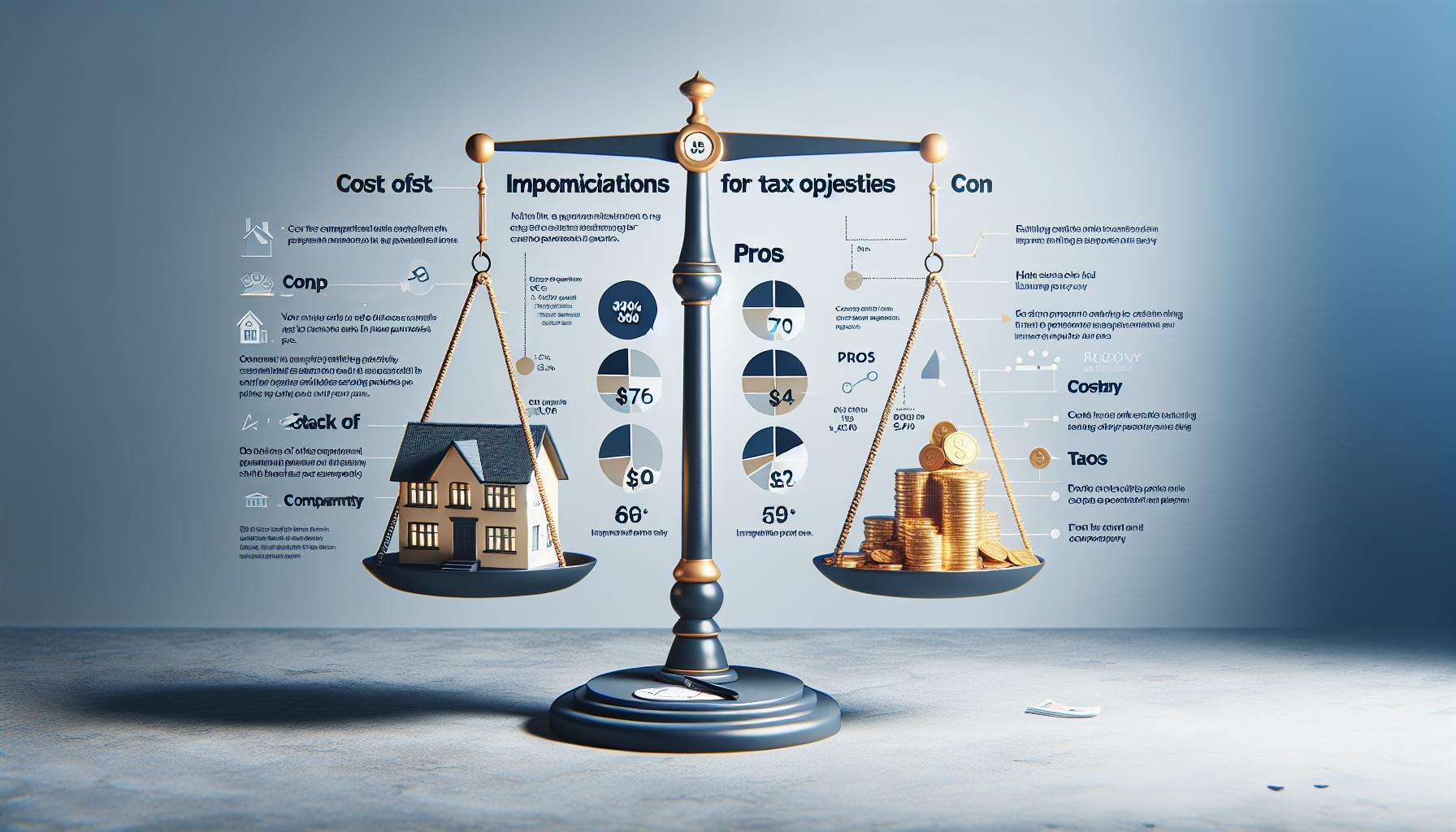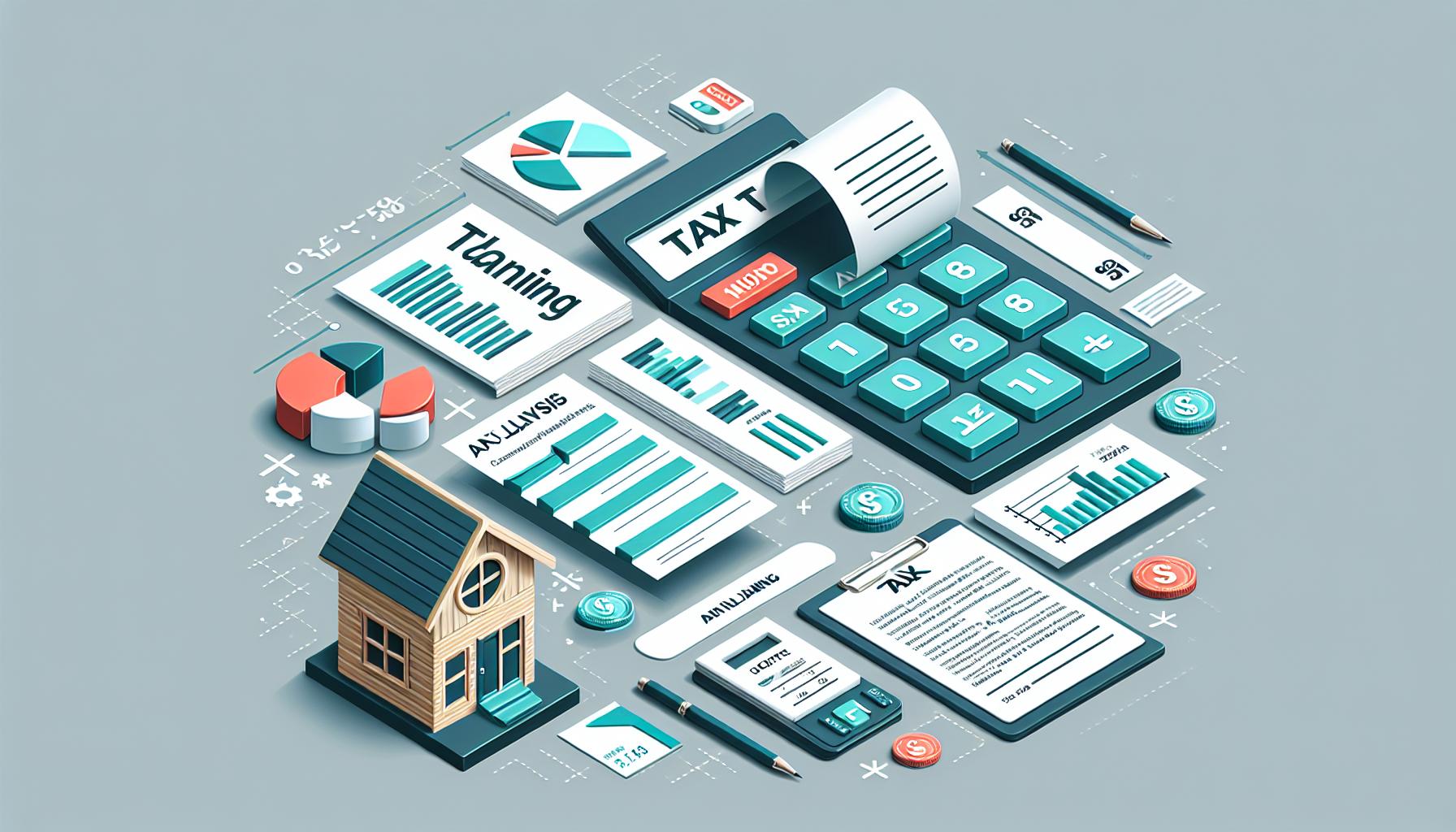January 20, 2024
Ltd Company Tax Benefits: Is It the Better Choice?
Ever wondered if setting up a Ltd company could be your golden ticket to tax savings? You're not alone! For many entrepreneurs and freelancers, exploring the tax world can feel like a maze. But don't worry, you've got this!
Understanding the basics of a Ltd company
Embarking on the journey of setting up a Limited Company (Ltd) isn't just a leap into the world of entrepreneurship; it's also a step into a different tax world. You've probably already guessed that it involves more than just picking a catchy name and jumping into operations. So, let’s strip it back to the basics, shall we?
First off, a Ltd company is its own legal entity. This means it's responsible for everything it does, its finances are separate from your personal ones, and, here's the kicker; it can be more tax-efficient than being a sole trader. You see, instead of income tax, Ltd companies pay Corporation Tax on their profits, and the rate is typically lower than the higher personal income tax rates.
Speaking of profits, taking money out of your company is done through a salary and dividends combo, which can reduce your National Insurance contributions. It's a bit like splitting your dinner bill to make use of a discount on both starters and mains—you maximise savings with a mix.
Here are some common mistakes you'll want to sidestep:
Thinking Corporation Tax is the only tax you'll deal with. Remember, you've got VAT, PAYE, and other taxes depending on your circumstances.
Not keeping accurate records, which is key for staying on top of your finances and compliance.
Underestimating the importance of timely Tax Returns. It's not just about avoiding penalties, it's also about financial planning.
If you want to navigate these waters smoothly, consider different accounting software to keep track of the accounts. Your choice might depend on the size of your business or industry-specific features. And don't worry if you're not a finance whiz—you don't have to do this alone. Partnering with a savvy accountant can be your best move. They're like your financial co-pilot, helping you steer clear of turbulence and towards tax-saving opportunities.
In terms of best practice, regularly reviewing your salary and dividend strategy ensures you're taking advantage of the ever-evolving tax thresholds and allowances. And when it comes to incorporating practices relevant to managing a Ltd company effectively, staying informed and seeking professional advice are non-negotiables. After all, forewarned is forearmed, and in the area of taxes and accounting, that's gold dust.
Pros and cons of a Ltd company

When you're mulling over whether to set up a Ltd company, it's like deciding whether to buy or lease a car; both options have their benefits and drawbacks, tailored to different needs and situations.
Pros:
Lower Personal Liability: Running a Ltd company means you're less personally liable for financial losses. Imagine wrapping your personal assets in a safety bubble that business debts can't pop.
Tax Efficiency: A Ltd company may pay less tax overall, thanks to Corporation Tax rates and the way you can take money out of the business. Think of it as a tap with adjustable flow — you can control how much tax you might pay within legal boundaries.
Professional Image: There's something about ‘Ltd’ that gives a business a more professional sheen. It's like wearing a tailored suit to a business meeting; it speaks volumes without saying a word.
Raising Capital: You can sell shares to investors, which is a bit like crowdfunding; people chip in, believing in your business, and you don't have to repay like a loan.
Cons:
Complexity: Setting up and running a Ltd company involves more paperwork and compliance than being a sole trader. It's akin to the difference between microwaving a ready meal and cooking a three-course dinner - the latter needs more effort.
Accountability: Your company's financial affairs are public record. It's like leaving your diary open on the table for others to peek in.
Restrictions: There are rules on extracting money from a Ltd company, creating less flexibility compared to a sole trader, like having a prepaid mobile plan vs. a pay-as-you-go one — there are certain limits to what you can do.
Common mistakes include missing deadlines for filing accounts or tax returns, which can lead to penalties. To sidestep these pitfalls, treat these dates like your best friend's birthday - non-negotiable and marked prominently on your calendar.
In terms of techniques and methods, there are clever but legal ways to extract profits, like balancing salary and dividends. This depends on your income needs and tax circumstances. You might imagine this as a DJ mixing different tracks: you've got to find the right balance to create a good vibe — or, in your case, an efficient tax position.
Tax advantages of a Ltd company

When you're considering the leap from sole trader to a Ltd company, tax advantages are often a driving force. Corporation Tax rates for Ltd companies tend to be lower than the Income Tax rates you'd pay as a sole trader. Currently, Corporation Tax sits at 19%, which is notably lower than personal Income Tax rates that can climb up to 45% for higher earners.
Talking about Dividends is like discussing your favourite plot twist in a novel – they offer an alternative narrative to your income story. Dividends, which are payments made to shareholders from the company's profits, are taxed at lower rates than salary. It’s a bit of a balancing act to figure out the most tax-efficient mix between your salary and dividends. Here’s the trick: pull a basic salary that keeps you below higher Income Tax bands, then top up with dividends to maximise your take-home pay while staying within the lower tax brackets.
One common mistake is overlooking the Employment Allowance, which can reduce your National Insurance Contributions by up to £4,000 – it’s like finding a hidden discount you didn't know you had. You're eligible if you're a director and have at least one employee.
Let's move to the less flashy but equally important Capital Allowances. Picture this: every time you buy equipment for your business, you're planting seeds that will grow into tax relief. Capital Allowances let you deduct the cost of certain business assets from your profits before you pay tax, easing your financial load.
Here’s a breakdown of how these tax advantages shape up:
Dividend Tax rate starts at just 8.75%
Save up to £4,000 with Employment Allowance
Corporation Tax at 19%, lower than higher personal Income Tax bands
Finally, although it's not strictly a tax matter, having a Ltd status may increase your chance of securing business as it's often synonymous with credibility. It's like wearing a suit to a meeting; it just makes you look more professional.
But don't stop there, explore various tax planning strategies with an accountant. They’ll guide you through tax reliefs you might not be aware of, like Research and Development Tax Credits for innovation or the Patent Box for patented inventions. These can be significant if your business is in the field of creating new products or technologies.
Understanding tax deductions for a Ltd company
When you're running a Ltd company, knowing your way around tax deductions is like finding hidden treasure in your business’s finances. These deductions can significantly reduce your taxable profit, leading to lower Corporation Tax bills. Here's your map to understanding these valuable reliefs.
Operating Expenses
Imagine your business as a ship. Just as it needs fuel to sail, your company needs operating expenses to run. Thankfully, the taxman allows you to deduct these costs from your profits. Operating expenses could include:
Office supplies
Staff salaries
Business travel
Utility bills
Essentially, if it's purely for business and not personal use, you can likely claim it. But, make sure you're not accidentally tossing personal expenses into the mix—that would be against the rules, and you don't want to be walking the plank with HMRC.
Capital Allowances
Capital allowances are a bit like planting seeds that grow into tax relief over time. They cover the long-term assets you buy for your company, such as equipment, machinery, or vehicles. These aren't fully deducted in one go but are spread across several years. This is where you can align the drop in an asset's value over time with tax deductions—smart, right?
There's a common mistake a lot of new captains make: mixing up capital and operating expenses. Remember, the computer you use daily is an operating expense, but the cost to upgrade your entire IT system is a capital expenditure. Keep these separate to ensure smooth sailing when claiming deductions.
Don't Miss Out on R&D Credits
In the quest for innovation, your company might investigate into research and development (R&D). If you do, there's good news—R&D tax credits. These are a powerful incentive for businesses like yours to invest in innovation. You could receive tax relief on costs associated with developing new products, processes, or services. Here's the kicker: even if the project fails, you can still claim the relief. So, it's worth keeping an accurate log of all R&D expenses as they could lead to substantial savings.
Keeping meticulous records
Understanding what qualifies as an allowable expense
Planning significant purchases to align with tax-efficient timing
Important considerations before choosing a Ltd company
When you're mulling over whether a Ltd company is the best choice for your business tax structure, it's like choosing the right outfit for an event - you've got to make sure it suits you perfectly. Keep in mind, a Ltd company isn't a one-size-fits-all situation. Bespoke advice from a professional accountant is invaluable, but here's a primer to get you started.
Limited Liability is a significant plus. Picture this: your business is a ship sailing the high seas. As a sole trader, if your ship hits a storm (debts or losses), you're personally liable. As a Ltd company, the ship takes the damage, so your personal assets are more like lifeboats, safely away from the wreckage. It's important to weigh up this protection against the increased administrative responsibilities a Ltd company demands.
Tax Efficiency often comes into play. You might've heard that Ltd companies pay corporation tax, which can be lower than income tax rates for individuals. But, extracting profits from your company is a different ballgame. You'll be paying yourself through salary and dividends, and trust me, you want to strike the right balance to avoid an own goal with taxes. Common mistakes? High on the list is going Ltd without a clear understanding of the compliance and reporting involved:
Annual accounts
Confirmation statements
Tax returns Avoid surprises; keep a calendar of when these are due and set aside time or engage an accountant to help with this.
As for Tax Planning, think of it as a chess game. Sure, you can move your pieces (money) around without much thought, but if you want to win (maximise tax efficiency), you need strategy. Plan your moves, like when to purchase assets or how to utilise losses. These decisions can have a significant impact on the tax you pay.
Remember, switching to a Ltd company may not be reversible without tax implications. So make sure you're not jumping ship unless you’re sure it’s the right voyage for your business. And when you're ready to take the plunge, consider these points carefully as you navigate the decision-making process for your business' tax journey.
Conclusion
Choosing a Ltd company can indeed be a savvy move for tax purposes. You've seen how leveraging tax deductions and credits can work in your favour. Remember effective tax management isn't just about the structure but also about your diligence with record-keeping and timing of expenses. It's essential to weigh the pros and cons carefully and seek professional advice to navigate the complexities of tax legislation. By doing so you'll be better positioned to take full advantage of the benefits while staying compliant. Make sure your decision to switch to a Ltd company is well-informed as it's a significant step with lasting implications.
Frequently Asked Questions
What are the main tax advantages of setting up a Limited Company?
Setting up a Limited Company (Ltd) can offer significant tax benefits, including lower corporation tax rates compared to personal income tax rates, the ability to claim various operating expenses and capital allowances, and eligibility for R&D tax credits if investing in innovation.
Are all operating costs deductible for an Ltd company?
Most day-to-day operating expenses of a Limited Company are tax-deductible, as long as they are wholly, exclusively, and necessarily for the business. These can include rent, utilities, staff salaries, and office supplies.
What are capital allowances?
Capital allowances are a way to gain tax relief on certain types of capital expenditure. They essentially allow businesses to write off the cost of qualifying assets, such as equipment, machinery, or business vehicles, against their taxable profits.
Can an Ltd take advantage of R&D tax credits?
Yes, Ltd companies investing in research and development (R&D) activities can claim R&D tax credits, providing substantial tax relief or cash payments to encourage innovation.
Why is record-keeping crucial for tax purposes in a Ltd?
Meticulous record-keeping is crucial for tax purposes because it ensures that a Limited Company can accurately report its income and expenses, claim all allowable expenses, and comply with tax laws to avoid penalties.
Should I consider professional advice before setting up an Ltd?
Yes, it is highly recommended to seek professional advice before setting up a Limited Company. Professional guidance is essential to understand the tax implications, ensure compliance, and maximise tax efficiency.
Are there irreversible tax implications when switching to a Ltd company?
Switching to a Limited Company can have irreversible tax implications; therefore, it's vital to thoroughly evaluate the decision and understand the long-term financial and legal commitments. Once assets are transferred into a company, they may be subject to different tax rules.
Similar articles

January 20, 2024
Established fact that a reader will be distracted by the way readable content.

January 20, 2024
Established fact that a reader will be distracted by the way readable content.

January 20, 2024
Established fact that a reader will be distracted by the way readable content.


